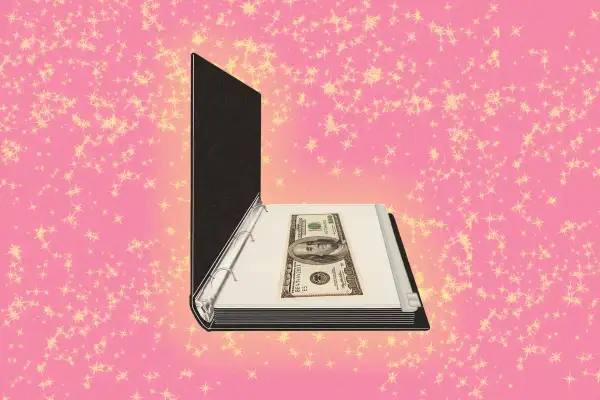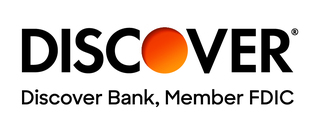Budget Binders Are All Over TikTok — But Can They Really Help You Save Money?

Budgeting works, but it's not exactly fun: Nobody's clamoring to sit down with highlighters and a stack of credit card statements to make tough decisions about their spending.
Or, at least, they weren't before budget binders came on the scene.
Over on TikTok, budgeting is becoming — dare we say it — cool. Creators are turning what was once a chore into a downright aesthetic activity, complete with fun fonts, glitter and the ASMR of shuffling crisp bills before the camera.
One user, mothertherese_, has racked up over a million views showing off her strategy for dividing up the cash she earns from her serving and bartending shifts at Texas Roadhouse. Still in uniform, mothertherse_ cheerfully zips 10s and 20s into clear envelopes labeled “gas,” “rent,” “apartment things” and so on, all clipped into a baby-pink binder.
What's behind the budget binder boom, and is it a good strategy?
Why budget binders are so popular right now
Priya Malani, the founder and CEO of Stash Wealth, says that she understands their appeal: “People are craving stability at a time when headlines read as anything but,” she says, and physically being able to hold their hard-earned money goes a long way toward making people feel financially secure.
Using paper currency is a vastly different experience than using digital currency (or thoughtlessly tapping your phone at a register). When dealing with actual dollars, Malani says, spenders often feel a greater responsibility toward their money. This makes it harder to quote-unquote “waste,” which is a good thing if you're trying to cut down on unnecessary expenses.
Malani stresses that budget binders are not a brand-new idea. "They're a resurfacing of a trend that had a chokehold on the population for a phase and then disappeared as quickly as they came," she says, comparing them to low-rise jeans and jelly shoes.
As flashy as your social media feed may make them seem, budget binders are just the latest twist on the cash envelope system, made popular by divisive money guru Dave Ramsey decades ago. The idea is that you can keep track of precisely how much money you have by relying on physical cash in labeled envelopes. You can actually see how much you have left, and once that stash runs out, you’re not able to buy anything else in a specific category for the month. It can help you avoid overspending and going into debt (a major Ramsey no-no).
“What’s old is new again,” quips Jeremy Zuke, a financial planner with Abundo Wealth.
Do budget binders actually work?
Regardless of whether you call it a budget binder, envelope system or cash stuffing, the core motivation is a good one. Zuke points out that Americans tend to under-save in general — some 37% of people say they can't afford an unexpected expense over $400 — and this can be a remedy.
“Anything that encourages saving behavior, even if that's a really beautiful binder you just love, is good in and of itself,” he says.
It can also help you be more intentional about spending. By breaking your expenses into hyper-specific categories and assigning each dollar a purpose, you're less likely to waste that money on random impulse purchases.
Zuke was particularly heartened by the budget binder videos that showed folks having a “Christmas” envelope. Every January, he says, his clients admit they’ve been blown off course by the holidays. Yet the holidays happen at the same time every year; those clients just need to plan better.
In this sense, budget binders can be a smart “temporary mindfulness exercise,” Malani says. If your credit card bills are out of control or you're spending recklessly, drilling down and reviewing your cash flow can definitely help you reset.
“A cash-based budgeting system is certainly better than no system at all,” she adds.
The downsides of budget binders: no insurance, interest or rewards
Alas, budget binders are not necessarily a great long-term approach.
In the past, Malani says, the cash envelope method worked well for folks because they didn’t have choices. We were a cash-based society; this strategy “rose to the top because it was the only option,” she says.
In the year 2024, however, we have alternatives. By keeping your money in cash in a binder (or envelope), you're missing out on Federal Deposit Insurance Corporation insurance, or FDIC insurance, which protects up to $250,000 per depositor, per bank, per account type, in the event of a collapse. There’s no insurance on a binder — you could lose it, someone could steal it, et cetera.
You're also forgoing any rewards you might accrue if you were spending via credit card instead. Credit cards offer a slew of their own protections, as well, including the ability to dispute charges and shield you from liability in case of fraud.
If you're using budget binders for long-term savings goals, like some of the creators on TikTok, you're not earning interest, either. Zuke points out that this is a particularly big mistake right now, when interest rates on high-yield savings accounts are higher than normal due to the economic environment.
The best budget system is one that works for your lifestyle — but new or not, budget binders are not necessarily the safest way to spend and save in the long term. Ideally, you want to make the most out of your money, and there are likely better ways to do that.
“Just because these systems are effective doesn’t mean they are, mathematically, the most efficient,” Malani says.
More from Money:
'Loud Budgeting' Is the First Viral Money Trend of 2024 — but Does It Work?
Why 'Girl Math' Can Actually Make a Lot of Sense for Your Money





